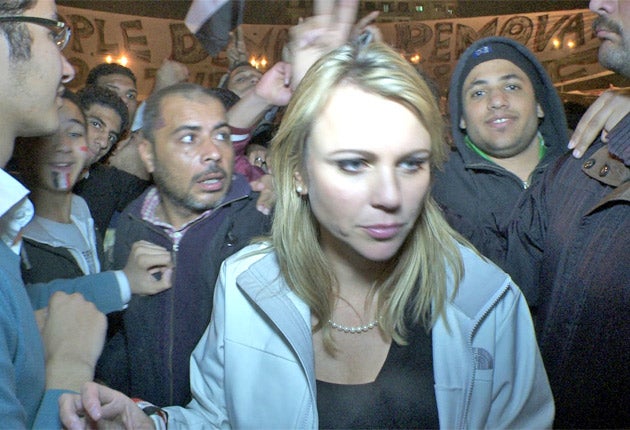CBS correspondent sexually assaulted while reporting on protests

Your support helps us to tell the story
From reproductive rights to climate change to Big Tech, The Independent is on the ground when the story is developing. Whether it's investigating the financials of Elon Musk's pro-Trump PAC or producing our latest documentary, 'The A Word', which shines a light on the American women fighting for reproductive rights, we know how important it is to parse out the facts from the messaging.
At such a critical moment in US history, we need reporters on the ground. Your donation allows us to keep sending journalists to speak to both sides of the story.
The Independent is trusted by Americans across the entire political spectrum. And unlike many other quality news outlets, we choose not to lock Americans out of our reporting and analysis with paywalls. We believe quality journalism should be available to everyone, paid for by those who can afford it.
Your support makes all the difference.Lara Logan, a top CBS correspondent, was recovering in the United States yesterday after suffering what the American television network called a "brutal and sustained" sexual assault during the celebrations of Egyptian President Hosni Mubarak's fall last Friday.
Logan, 39, the network's chief foreign correspondent, was covering scenes in Cairo's Tahrir Square shortly after the president stood down when she, her crew, and its security detail were surrounded "by a dangerous element amid the celebration," CBS said.
The CBS statement added: "It was a mob of more than 200 people whipped into frenzy. In the crush of the mob, she was separated from her crew. She was surrounded and suffered a brutal and sustained sexual assault and beating before being saved by a group of women and an estimated 20 Egyptian soldiers."
The South African-born Logan originally made her name as a war correspondent for Britain's GMTV during the start of the US-led Afghan war in 2001 and subsequently reported on the invasion of Iraq and the violent aftermath. She joined CBS News in 2002.
The violent assault was one of 52 attacks on media personnel that the Committee to Protect Journalists recorded during the protests which led to Mr Mubarak's fall. But unlike most of the reported incidents, it appears that anti-Mubarak demonstrators were behind the attack on Logan, rather than police or forces supporting the now-deposed president.
Another 72 journalists were detained by Egyptian security forces, and one Egyptian journalist, Ahmad Mohamed Mahmoud, was killed by what witnesses said was fire from a police marksman as he was photographing clashes.
Logan had herself been detained a week earlier by the Egyptian military for a day, along with a CBS producer and cameraman. They went back to the US after their release, and Logan returned to Cairo shortly before Mr Mubarak left office.
Sexual harassment against women is notoriously common on Cairo's streets but many women noted a marked absence of such behaviour during the first wave of protests in Tahrir Square, citing that as exemplifying the "New Egypt" the demonstrators wanted to usher in.
But in the final days there were reports that the problem had crept back among the crowds in the Square. Associated Press reported yesterday on one incident in which a woman slapped a man who had groped her, though on this occasion the man was forced to run a gauntlet of people who hit and shouted at him.
Join our commenting forum
Join thought-provoking conversations, follow other Independent readers and see their replies
Comments